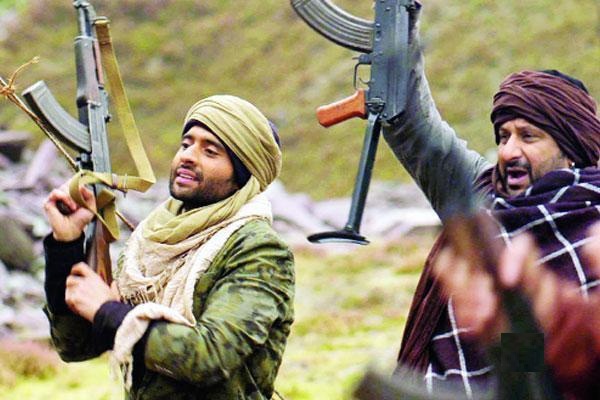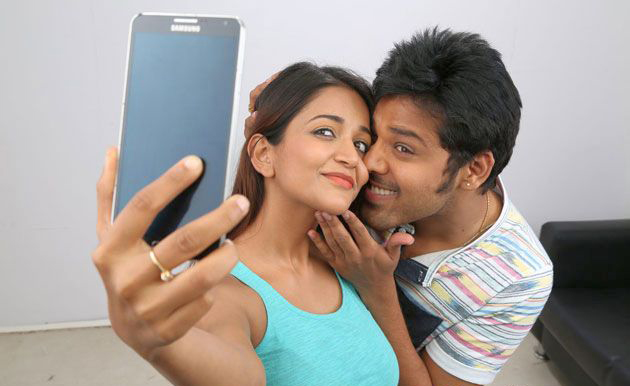
Soggade Chinni Nayana is a film whose sensibilities you can unabashedly call Indian at heart. You see the smell of the humour, a delicious regional spin to it, supernatural elements surrounding temples, souls, handpicked from many tales we all grew up hearing and witnessing; the mix expectedly strikes an instant chord. And to top it, this package is firmly lead by an actor, Nagarjuna, who’s increasingly getting less-conscious of his presence and yet surer of his choices. That’s why, you see the humour, action, subtle horror blending like wildfire. All the lush green farms, the motu sarasam, the banana leaves in this rural backdrop greet you to a meal that you’re not yet ready to outgrow.
There’s a lot of ANR-inspiration that the lead actor has quoted recently for this role of Bangarraju, but his self-made panache does the trick here. You don’t find sequences where he’s trying to play beyond his belt, knowing where to go overboard, act coyish, and coming to his own to connect the emotional strings. He invariably plays true to his on-screen casanova image, his flirtatious doings with multiple actresses bearing naughtiness every now and then ensure a heartfelt grin.
On the making front, the film reiterates how strong storytelling more often than not makes up for an okayish story. Here, if you need a one-liner, it’s about a man’s soul making an earthly return to solve an issue. There comes the supernatural side of it, a socio fantasy turn, a yama, a hell-like setting, a muhurtam of a sivaratri, the film is well aware of its limits and the crowd it wants to target. There are parts you would call tentatively slow, old fashioned. But, contemporary relevance is never what debutant maker Kalyan Krishna’s aims at.The film’s twists are still preserved for the right places, some for the first hour, the intermission and the last hour too. However, Soggade relies more on the beauty of the little moments, especially in the Ramyakrishna-Nagarjuna thread, where the romance is pure, organic and chirpy.
The aftertaste of the film lies in your apetite to tolerate the toast it gives to Nagarjuna’s ‘oh-I-am-a-dream-boy’ image. Well, he is deserving of it, but the makers keep pushing it more and more. He makes the girls do a cat walk, works out a mehndi design for them and has a baggage of one-liners to make them fall for him. It’s nice to see the confidence with which a 54-year-old enacts these parts.
That’s where too, the film gets into a shell of its own, only to thankfully emerge out of it later. You’d have wished for the film to end better for all the efforts put in. Although the male lead seems to be walking away with the honours at the end of the day, Soggade shows our need to celebrate Ramyakrishna’s presence more, be it for the every ounce of glamour she showcases or that bit of intensity and sincerity in the climax. Lavanya Tripathi definitely looks more assured after Bhale Bhale, the other girls Hamsa Nandini and Anasuya too add up to the feminine charm of the movie. Brahmanandam’s part comes with a reason, but the lead actors do the humour bit better. It suddenly feels fresh to see a full-on village drama with sparkling dialogues, peppy music, bullock-carts and the rangolis. This festive trip is a timely shift from the urbane.
Rating: ***.5









